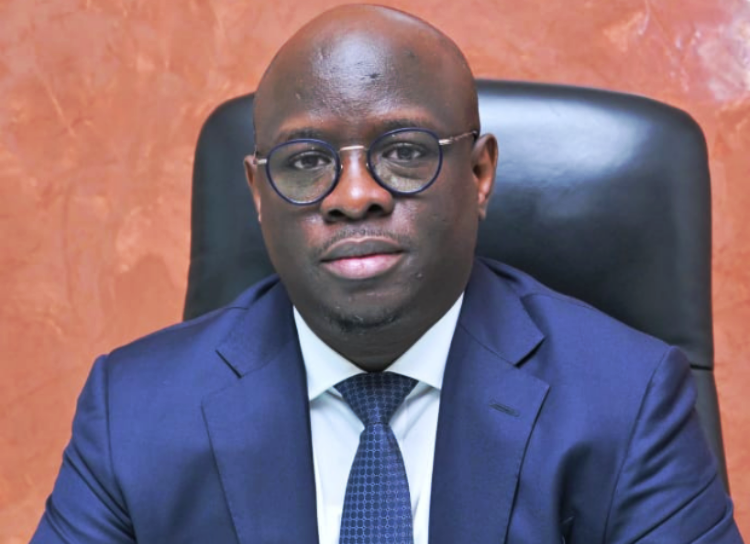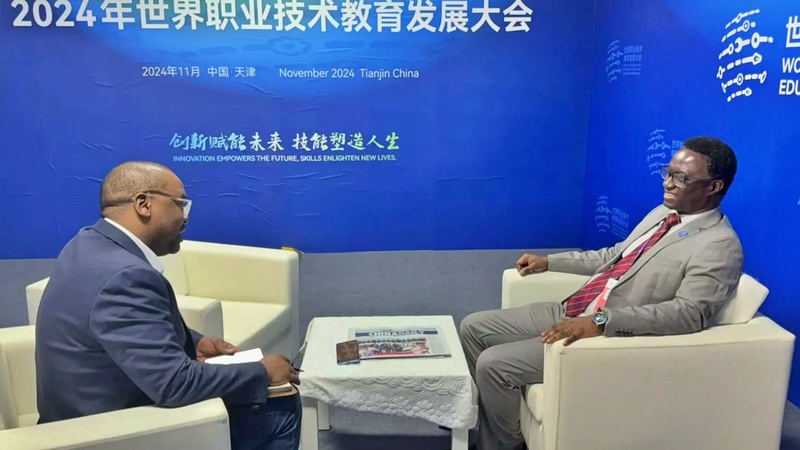Gambiaj.com – (TIANJIN, China) – In an exclusive interview at the 2024 World Vocational and Technical Education Development Conference in Tianjin, China, Professor Pierre Gomez, The Gambia’s Minister of Higher Education, Research, Science, and Technology, unveiled an ambitious strategy to transform vocational and technical education. The initiative aims to close the skills gap in The Gambia and serve as a model for Africa’s broader development.
Reflecting on his educational journey, Gomez recounted how South African literature profoundly shaped his worldview during the apartheid era. This experience now fuels his commitment to positioning education as a tool for economic liberation.
“Education is the key to economic liberation,” he asserted, emphasizing its potential to empower youth not just to seek jobs but to create them.
Revamping Education for Economic Growth
Gomez detailed a comprehensive overhaul of The Gambia’s educational framework, prioritizing Technical and Vocational Education and Training (TVET). Among the initiatives are the establishment of a higher education trust fund, a student loan scheme, and a research and innovation fund designed to equip young people with market-relevant skills.
“We aim to ensure that education liberates our youth, empowering them to create jobs rather than merely seeking employment,” Gomez noted.
Key elements of the strategy include curriculum reviews aligned with industry demands and the integration of public-private partnerships. This approach, Gomez explained, ensures that students gain practical, workforce-ready training.
Addressing Migration and Fostering Retention
The minister highlighted education as a critical tool for reducing rural-urban migration and discouraging dangerous irregular migration abroad.
“An educated youth is less susceptible to the allure of irregular migration. They will understand their potential and the value of contributing to their nation,” he said, emphasizing the need to provide viable opportunities at home.
Gomez underscored the value of international collaboration in advancing The Gambia’s educational goals. He cited ongoing engagements with South Africa and Nigeria, sharing expertise and resources to bolster TVET. He also pointed to China’s economic success as an inspiration, crediting its strategic investments in education.
“China understood that investing in education changed lives and built a new future,” he remarked.
Looking beyond national reforms, Gomez advocated for greater regional integration and partnerships within frameworks like BRICS. He called for strengthened intra-African cooperation to drive mutual growth and development.
“We must foster intra-African cooperation and support each other. Africa can only advance if we unite in our mission to uplift our communities through education,” he concluded.
Gomez’s vision offers a bold roadmap for tackling some of Africa’s most pressing challenges, positioning education as the cornerstone of sustainable development and economic empowerment.










